Linux commands: sort
A quick guide to the `sort` command, used to sort records/lines of text
AI workshop
join cohort #1
Suppose you have a text file which contains the names of dogs:
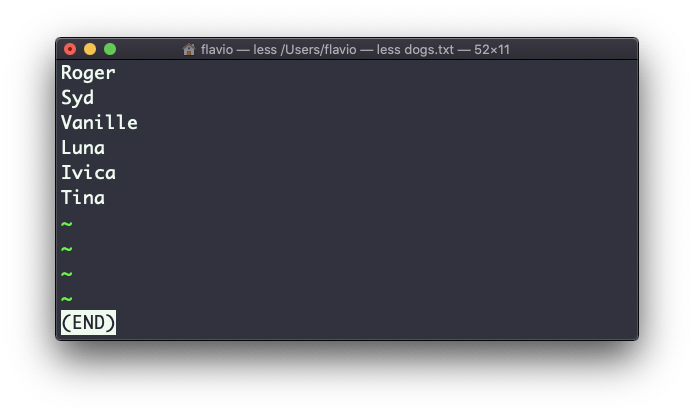
This list is unordered.
The sort command helps us sorting them by name:
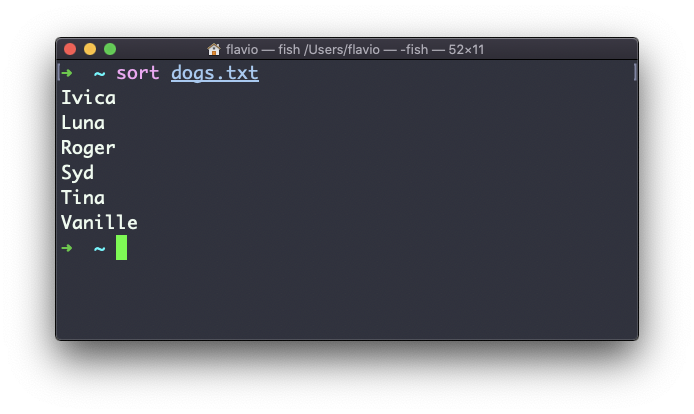
Use the r option to reverse the order:
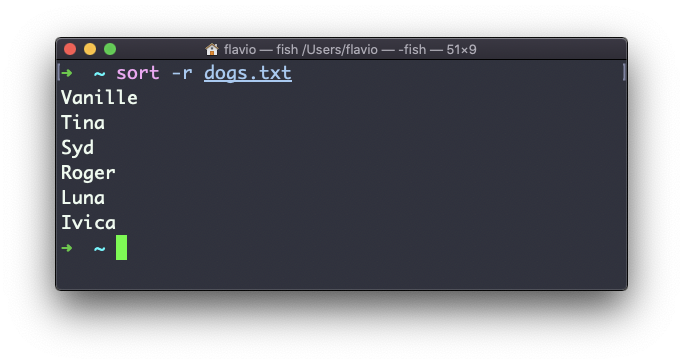
Sorting by default is case sensitive, and alphabetic. Use the --ignore-case option to sort case insensitive, and the -n option to sort using a numeric order.
If the file contains duplicate lines:
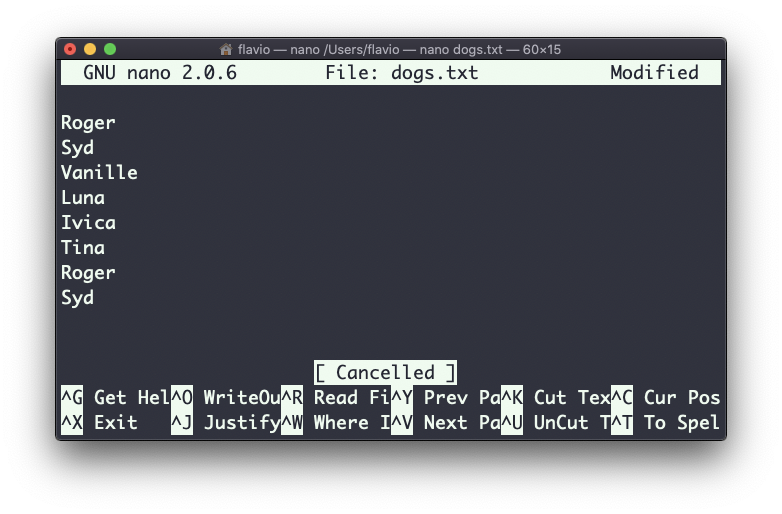
You can use the -u option to remove them:
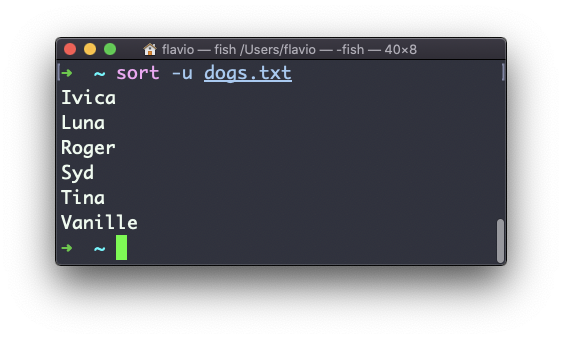
sort does not just works on files, as many UNIX commands it also works with pipes, so you can use on the output of another command, for example you can order the files returned by ls with:
ls | sortsort is very powerful and has lots more options, which you can explore calling man sort.
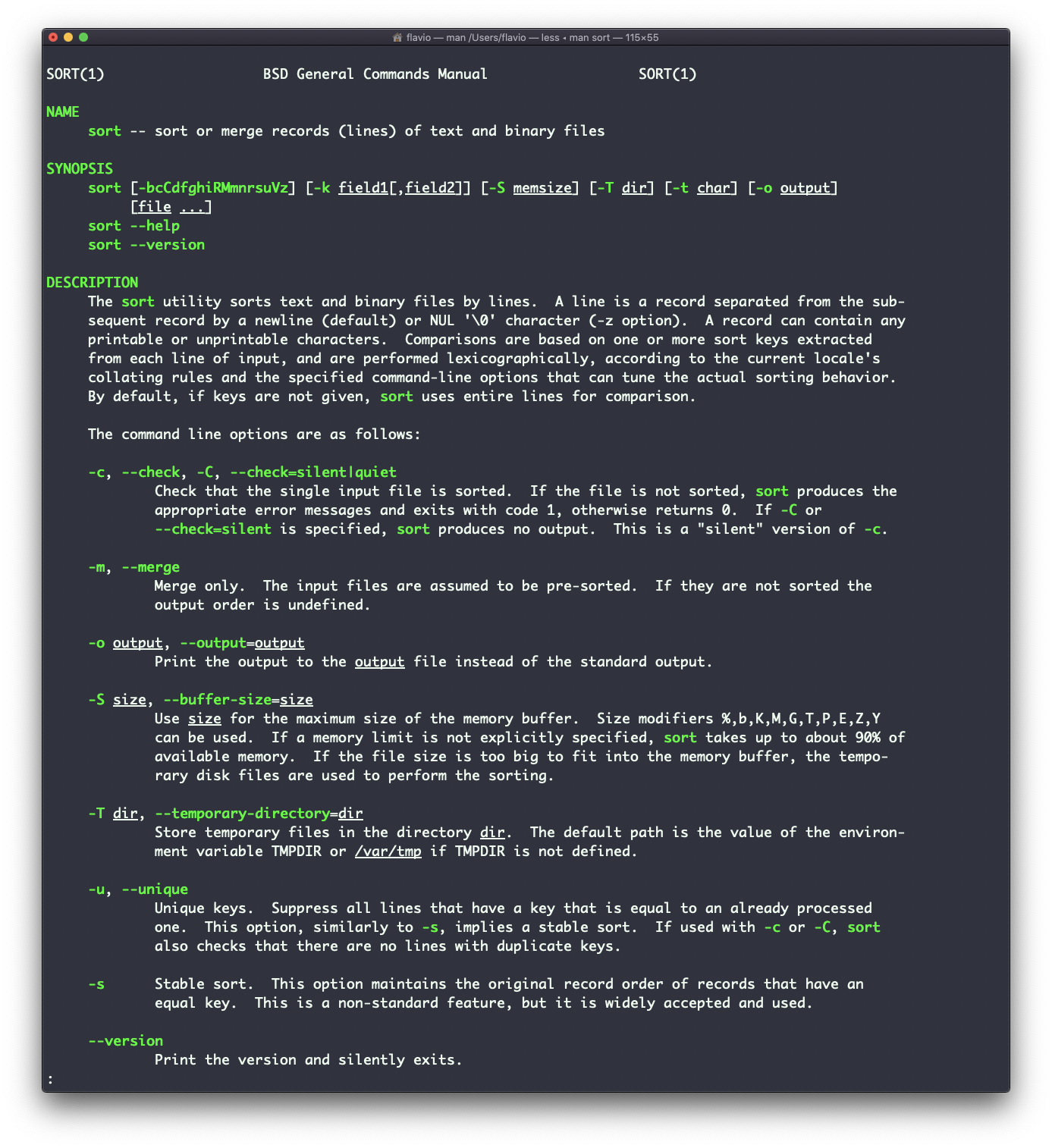
The sort command works on Linux, macOS, WSL, and anywhere you have a UNIX environment
I wrote 20 books to help you become a better developer:
- Astro Handbook
- HTML Handbook
- Next.js Pages Router Handbook
- Alpine.js Handbook
- HTMX Handbook
- TypeScript Handbook
- React Handbook
- SQL Handbook
- Git Cheat Sheet
- Laravel Handbook
- Express Handbook
- Swift Handbook
- Go Handbook
- PHP Handbook
- Python Handbook
- Linux Commands Handbook
- C Handbook
- JavaScript Handbook
- CSS Handbook
- Node.js Handbook